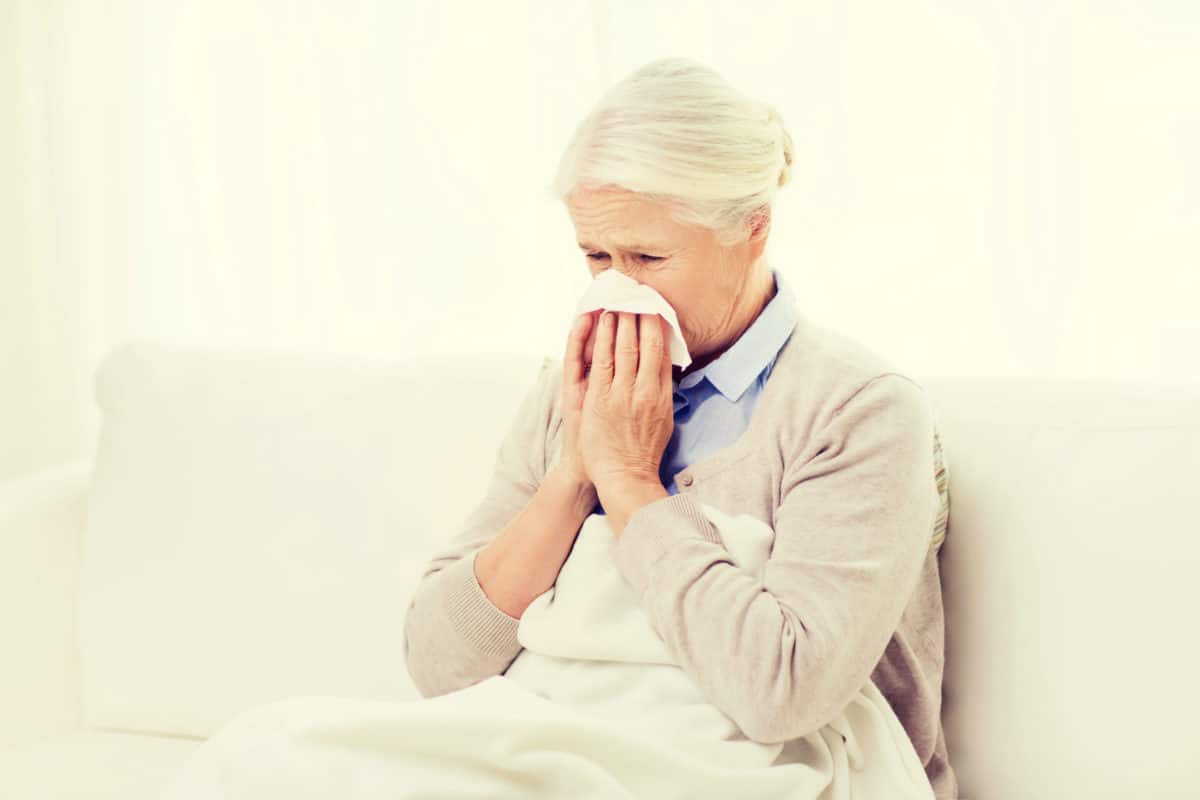
As we see COVID-19 infection rates ebb and flow, many older adults continue to suffer symptoms of COVID long after recovering from the initial infection.
Long COVID occurs when individuals experience symptoms that affect their health much longer than the average recovery time from COVID-19. Most sufferers of Long COVID have symptoms lasting two-to-nine months, and many times, even longer. It is alarming to note that older adults are more likely to suffer from Long COVID. Studies estimate that about one in 20 people with COVID-19 are likely to experience symptoms for eight weeks or more. Additionally, about one in five adults older than 70 developed Long COVID, compared to about one in 10 of those 18 to 49 years of age.
It has been widely known that this pandemic has hit older adults the hardest. According to the Centers for Disease Control and Prevention (CDC), 95 percent of all coronavirus deaths in the U.S. involve a patient at least 50 years of age or older.
Dr. Aaron Bunnell, co-director of the University of Washington School of Medicine’s Post-COVID Rehabilitation and Recovery Clinic, stated, “When you come into an illness, your baseline affects your outcome.”
“A 60-year-old man has a different cardiopulmonary reserve than a 20-year-old. So, if you take a 20 percent hit to your cardiovascular endurance, the older man has less reserve.”
What does this mean? According to Bunnell, the older you are, the less reserve you have to fight the virus with, allowing for the symptoms of COVID to last long past the initial illness.
Is it Long COVID or something else?
You may be wondering if what you are experiencing is Long COVID or if you have come down with a cold, flu or another virus. Patients with Long COVID have reported a range of symptoms, including fatigue, loss of smell or taste, insomnia, shortness of breath, brain fog and an elevated heart rate. In addition, older adults with Long COVID are prone to anxiety, depression, confusion and loss of appetite. So, take it seriously if you notice you aren’t feeling well and things are out of character physiologically. Seeing a doctor with your concerns is the first step to a diagnosis and, in turn, treatment.
Is there any treatment for Long COVID?
One of the most challenging parts of treating Long COVID is that the illness can vary from person to person. There is still a lot we don’t know about COVID, making it difficult for medical professionals to create one standard treatment protocol. There are, however, a few things that you can do.
The first solution for Long COVID is to get vaccinated The COVID-19 vaccine may reduce Long COVID symptoms. Many patients have reported that their Long COVID symptoms improved several weeks after vaccination.
Many people with long COVID have symptoms affecting the brain, nervous system, heart and lungs. Because of this, it is essential to speak to your primary physician and discuss whether it is necessary to see a neurology, cardiology or pulmonology specialist. These specialists can deliver tailored treatments based on your unique set of symptoms.
Remember that doing too much too fast in treatment or rehabilitation can even lead to worsening symptoms, making Long COVID care a delicate balance.
Disability Coverage
In July 2020, President Joe Biden announced that Long COVID could qualify as a disability, and patients could file for coverage under the Americans with Disabilities Act (ADA). Although this announcement is a policy directive rather than a new legal requirement, it is a big deal. This declaration makes it easier to seek treatment and be protected.
Recovering from Long COVID takes time. But the key is finding the right medical team to walk you through the process. Contact us today to learn more about how our physical therapists and other medical professionals can help.
